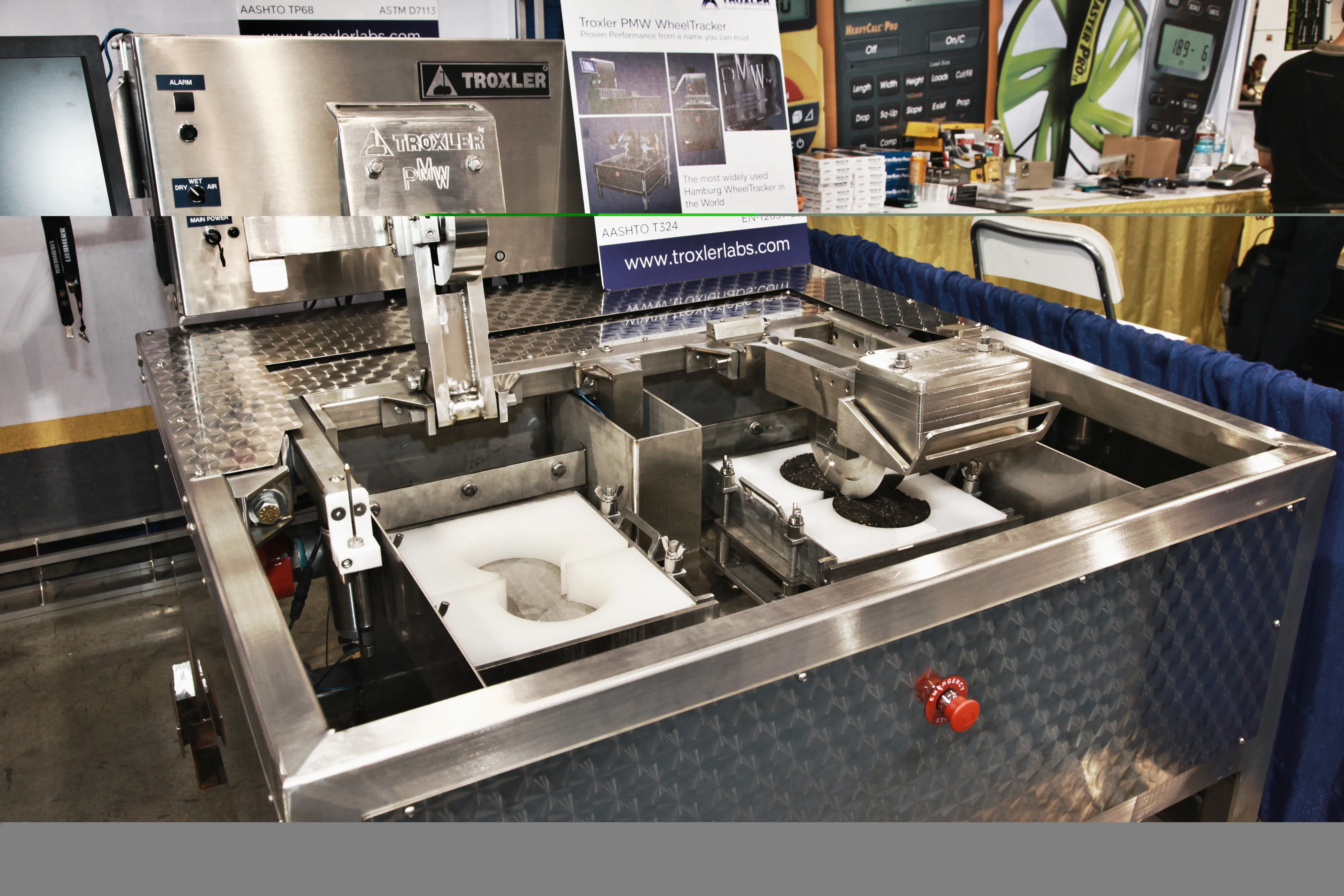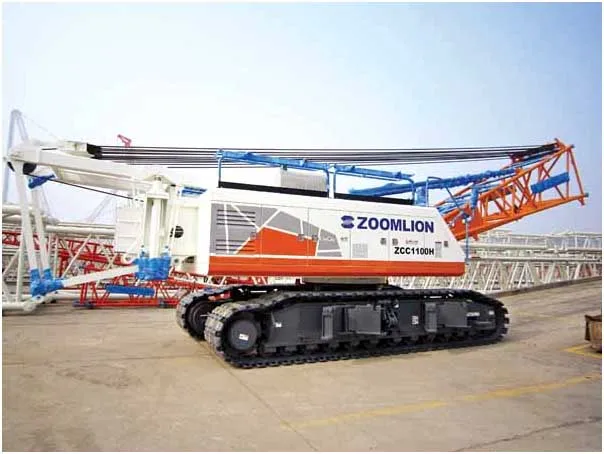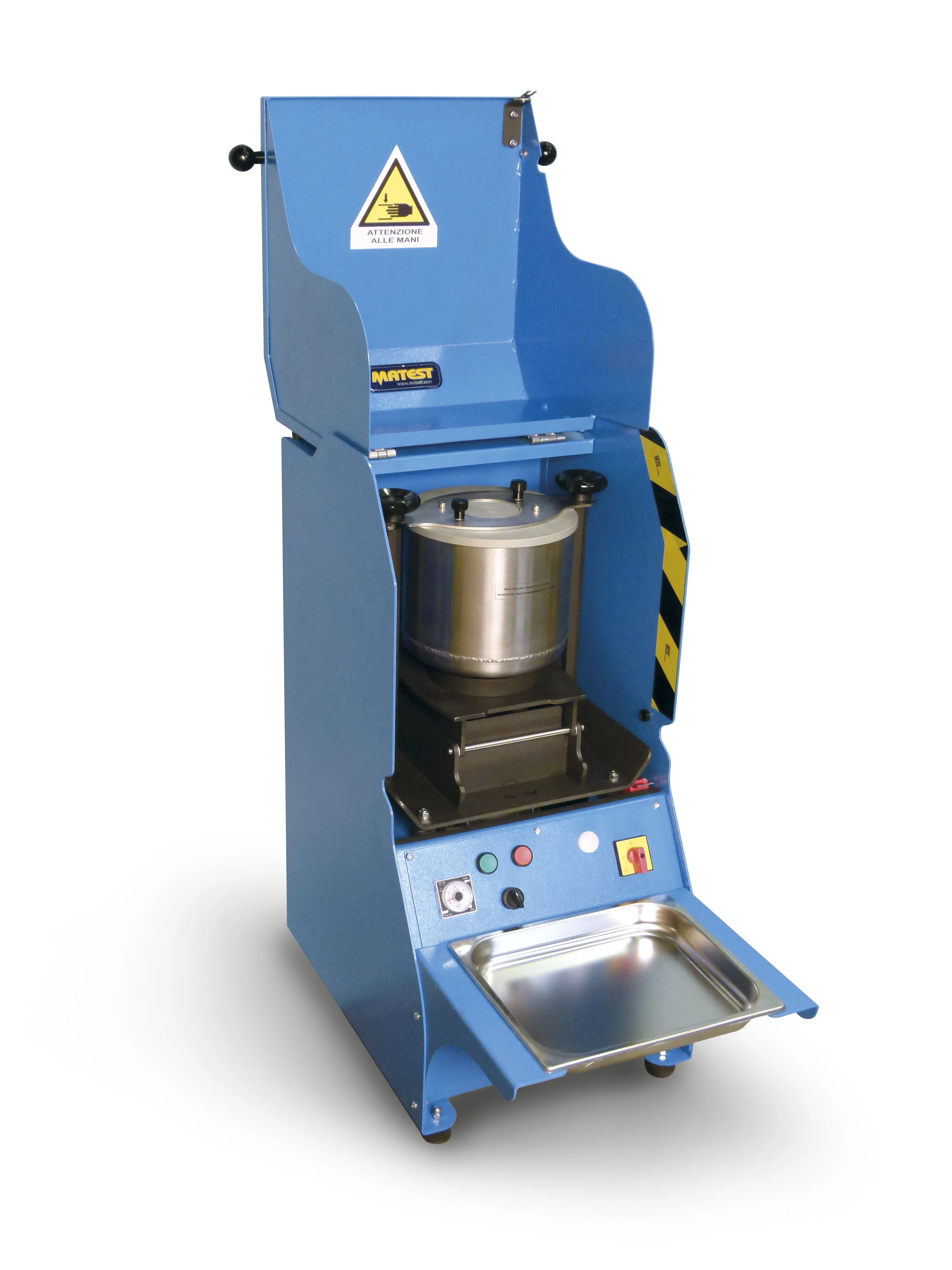Troxler has its Hamburg Wheel Tracker on show at Conexpo, a product which it acquired when the company purchased Precision Machine and Welding around 18 months ago. Since then, Troxler has made a few changes. The software has been updated to make it more user-friendly and the manufacturer has adapted the way in which the machine is put together.
March 7, 2014
Read time: 2 mins

Since then, Troxler has made a few changes. The software has been updated to make it more user-friendly and the manufacturer has adapted the way in which the machine is put together.
“Previously it was produced on a more bespoke basis. We have adapted it to fit the assembly line,” said Ryan Kirkendall, Troxler’s market manager for laboratory test equipment.
According to Kirkendall Troxler decided to buy an existing machine rather than develop its own because “rather than muddying up the dirty water with yet another machine, we thought we would take an established brand and add to it with our technical services, and improve the production quality and quantity.”
“This machine has a pretty loyal following in the US,” he added. “It’s really rigid and really durable and there are almost 200 units out there in the US.”
Demand for Hamburg Wheel Trackers is set to rise in the US over the next five years, as more and more states move over to performance-based specifications. Troxler, which currently exports around 10% of its machines, hopes to ramp up its overseas customer base too.
“Asia is one of the biggest areas of demand,” said Kirkendall. “We expect growth in India, and also in areas of the Middle East such as Saudi Arabia.”
www.troxlerlabs.com








